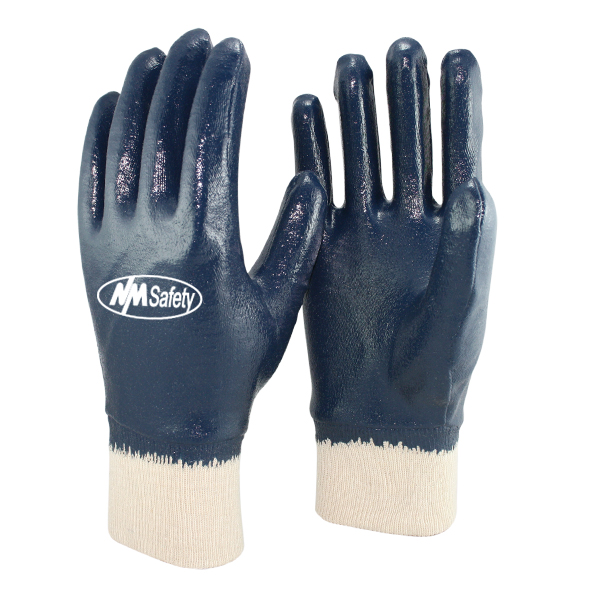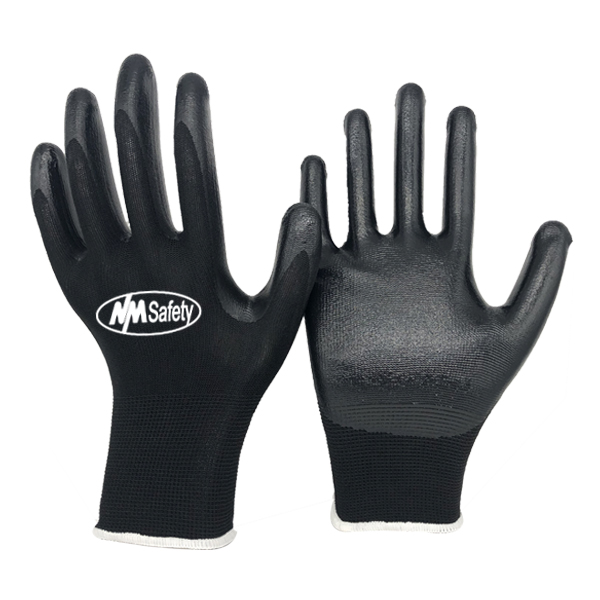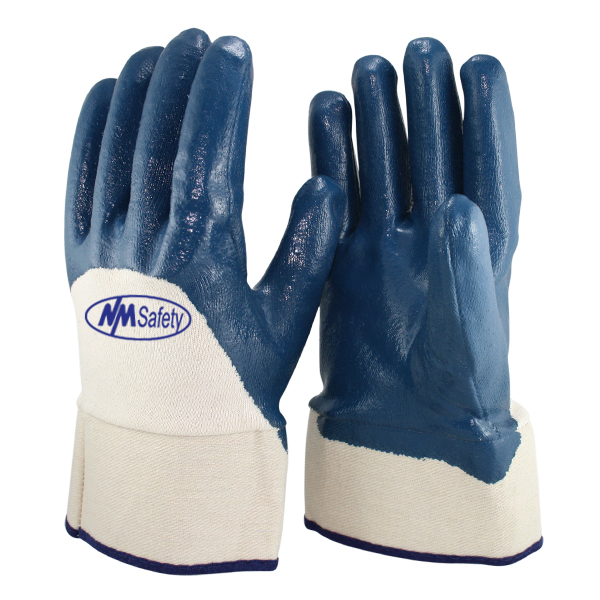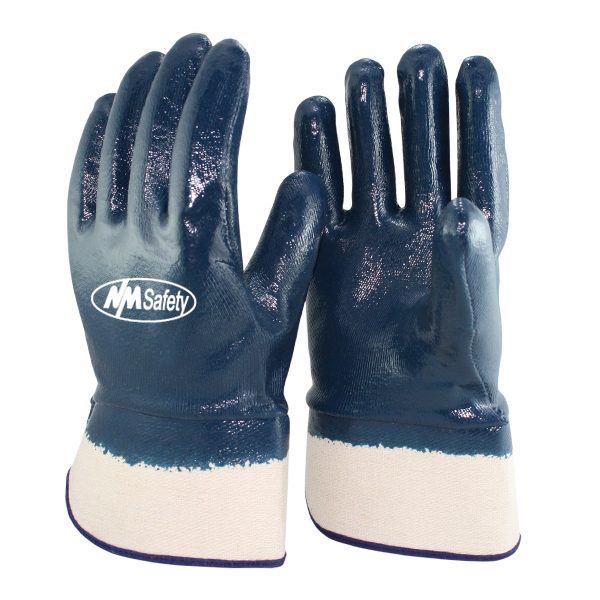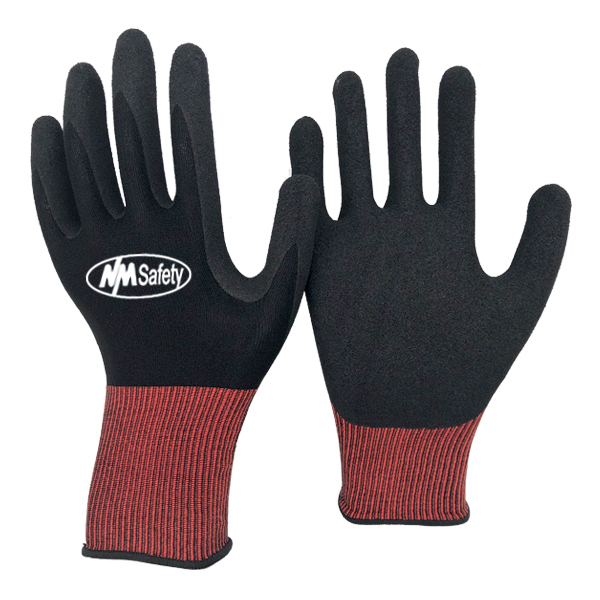What are Gloves Knitted Cuff:
Gloves Wool, acrylic, or polypropylene are common materials for knitted cuffs. Cuffs prevent the passage of gaseous chemical compounds in hot and cold air. The knit wrist is a comfortable, snug-fitting choice that keeps warmth throughout the winter months while preventing dirt and debris from invading your cuff. Glove knit wrist cuff can also be a standalone item of wristwear that covers the palms. Gloves knitted cuff can be worn as a fashion accessory or to keep hands warm.
Use of Gloves knitted cuff:
Gloves knitted cuffs are commonly found on the following garments:
- The upper part of the glove
- The lower edges of the jacket sleeves
- Sleeves of sweatshirts and overalls are shorter
- Lower sleeve borders of safety suits
Advantages:
It keeps the glove firmly in place so that glove does not slip off. It binds the sleeve edge tightly around the wrist in jackets and sweatshirts, reducing the chance of loose cloth becoming stuck in the rotary wheels or gears of a machine while it is in use.
To ensure adaptability, we kept their design simple but elegant. Gloves knitted cuffs are versatile enough to go with almost any outfit.
Features:
- Cozy knitted cuff
- Touch Screen compatible
- Adjustable leather tab
- Super cozy lining
Types Of Gloves:
Cleanroom gloves:
Cleanroom gloves are ideal for use in laboratories and other sterile situations. These are form-fitting to give workers the skill they need. They shield the hands from chemicals and abrasion while reducing pollution.
Cryogenic gloves:
Cryogenic gloves protect the hands and arms of humans in cold environments (liquefied nitrogen, etc.). These products are available in many cuff designs, some of which are reachable to the shoulder. They are highly efficient in case heat transfer, water resistance, and flexibility.
Driving gloves:
Driving gloves help any driver gain a better grasp of a control mechanism. These are useful in warehousing and transportation environments, and some of them may be flame resistant. For additional flexibility, they frequently have an exposed knuckle.
What is Nitrile Full Coated Gloves Knitted Cuff?
The nitrile full coated gloves knitted cuff is made by fully dipped solid nitrile on a two-piece jersey liner with a knit wrist for comfort. Solvent, grease, oil resistance, and excellent abrasion resistance are all features of these gloves. The knit wrist cuff keeps the nitrile-coated gloves from falling off your hands while you are wearing them. It has a cut-resistant liner. It is resistant to cuts, punctures, and abrasion.
Features:
- Grease lubricants, fuels, punctures, and snags are all resistant to nitrile full coated gloves knitted cuff
- Most chemicals will not harm it
- Soft cotton stitched gloves provide a more comfortable performance for your hands
- The knit wrist design of the gloves provides superior protection because it is so near to the wrist
- Gloves that are light in weight
Use Of Nitrile full Coated Gloves Knitted Cuff:
Forestry, logging, and lumber operations, general maintenance, general material handling, handling of fabricated building materials such as concrete block, brick, tile, and lumber, heavy-duty handling of castings, cores, and fabricated metals, refuse collection and working with and managing cables are all examples of assembly applications.
Nitrile-coated gloves are also a good asset for businesses that require extended PPE use because of their pleasant fit and simplicity of application and removal. These gloves are also appropriate for applications or jobs that demand frequent glove changes over a short period.
Application:
Heavy-duty gloves are acceptable PPE for a wide range of industries. Cuts, liquids, and abrasive materials are just a few of the potential hazards that these gloves protect the wearer.
These gloves can specifically help workers in the following situations:
Chemical labs: Those who operate in laboratories are regularly at risk of potentially dangerous compounds. Because of their chemical resistance, these gloves are a feasible option for shielding this personnel from hazardous chemicals and organic solvents.
Industrial plants: These gloves offer protection against many hazards, including commercial cleaning agents, chemicals, pesticides, and more, making them ideal for industrial and commercial settings.
When Should Not Use Nitrile Full Coated Gloves Knitted Cuff:
Although heavy-duty gloves provide adequate protection against different chemicals and hazardous materials, some compounds are risky to handle with nitrile gloves.
These gloves provide inadequate resistance when exposed to severely dangerous compounds, with a time of less than a minute. If the harmful substance seeps through the glove, it could harm the wearer's hand's skin.
When working with these potentially hazardous materials, avoid wearing nitrile gloves:
- Solvents containing aromatic compounds
- Ketones
- Acetates
- Concentrated Acid
- Extremely corrosive chemicals
How to keep it?
Heavy-duty gloves survive a long time, although they will degrade with time, just like any natural substance. If you want your box of these gloves to last a long time, keep them out of direct sunlight and away from heat.
How to Discard?
Follow these actions if your gloves become contaminated:
- Grasp the outside of one glove at the wrist without touching your skin.
- Pull the glove inside out as you peel it away from your body.
- Hold the freshly removed glove in the gloved hand that is still gloved.
- To begin peeling the glove off, slide your non-gloved fingers into the glove you're still wearing at the top of the wrist.
- As you draw the second glove away from your body, turn it inside out, leaving the first glove within the second.
- Discard the gloves properly, ensuring that they can never use again.
- After removing the contaminated gloves, wash your hands immediately.
Conclusion:
Safety should be a priority of humans. Everyone should avoid negligence in this matter. If you are working where is a chance that something serious could happen, you should keep the heavy-duty gloves while dealing with machinery or anything that can cause serious injury. They prevent you from a lot of risks and contamination.NM Safety provides the best and most affordable Nitrile Full Coated Gloves Knitted Cuff. These are of the best quality and keep you safe.





